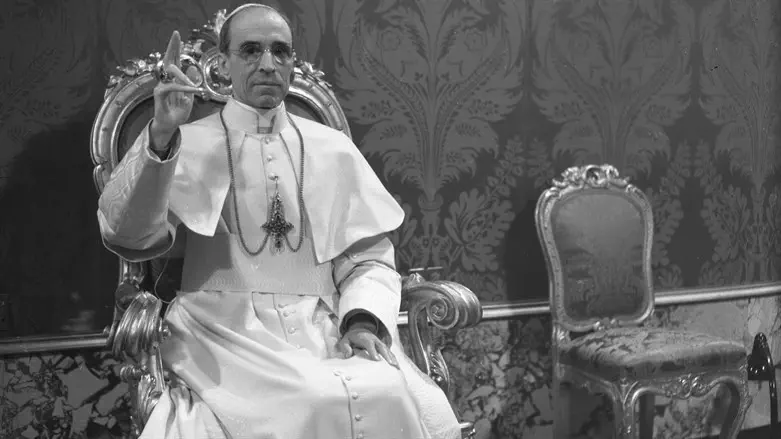
A newly uncovered letter provides the strongest evidence yet that Pope Pius XII knew about the Nazi extermination of the Jews as it was happening, the latest in a series of recent discoveries that have transformed the debate over the Catholic Church’s conduct during the Holocaust.
The letter was sent by Rev. Lothar Koenig, a German Jesuit priest, in December 1942, and informed Pius of the mass murder of thousands of “Poles and Jews” at Belzec, a Nazi death camp. It was discovered by Vatican archivist Giovanni Coco and first reported on this weekend.
Pius’ actions during the Holocaust have been the subject of debate for decades. While serving as a senior Vatican official before ascending to the papacy, Pius had signed a treaty with Nazi Germany. Later, as pope, he maintained a public silence as Italy’s Jews were rounded up and deported to death camps.
For years, some prominent Vatican historians have argued that the pope was indifferent to the fate of Europe’s Jews. Other scholars, meanwhile, have argued variously that Pius was unaware of the full extent of Nazi war crimes and that he pursued secret back channels to funnel as many Jews to safety as possible.
Scrutiny of Pius has intensified after Pope Francis unsealed the Vatican’s archives on Pius in 2019, an action he explained by saying “the church is not afraid of history.” Earlier this month, researchers uncovered documentation listing thousands of Jews who had been sheltered from the Nazis in Catholic convents and monasteries.
Koenig’s letter leaves little room for doubt about whether Pius knew of the Holocaust.
“It was already well established that Pius XII had early reports of the Nazis’ systematic efforts to exterminate the Jews of Europe,” David Kertzer, a Jewish Pulitzer-prize winning historian of the Vatican during World War II, told the Jewish Telegraphic Agency.
But Kertzer said the recently discovered letter was important because it adds detail to the historical record regarding what Pius knew. The fact that its existence was made public by an official Vatican archivist, Kertzer added, “is a sign that there are those in the Vatican eager to see the Vatican face this history frankly.”
The letter was sent to the pope’s secretary, his closest adviser — which means that Pius almost certainly saw it, Coco said. Coco said that he was “99% sure” Pius saw the letter, a conclusion bolstered by the fact that the letter was found in the pope’s personal papers, according to The New York Times.
The letter, which describes the persecution of Catholics in Germany, includes the information about Belzec in an appendix. It also points to a longer trail of papal communication about the mass murders. There are references to reports of the death camp Auschwitz and the concentration camp Dachau, hinting at the existence of other documents sent to the Pope that haven’t been discovered yet.
“Many people were writing to the Holy See describing what was happening,” Michele Sarfatti, a researcher from the Contemporary Jewish Documentation Center in Milan, told the Times.